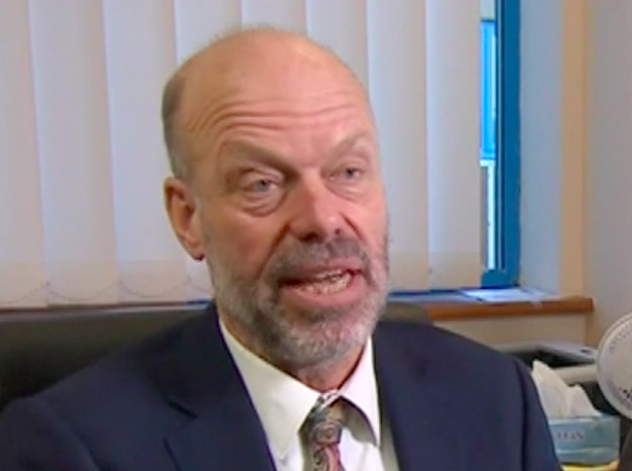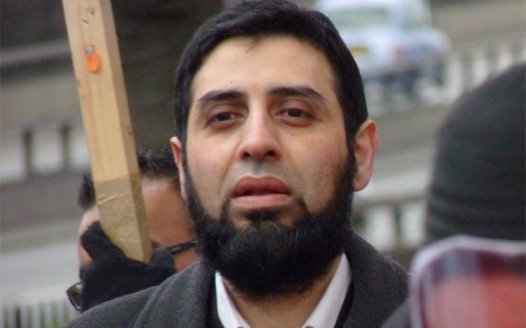Tribunal: Teen “traumatised” after told by GP to apologise to God
Posted: Mon, 2nd Oct 2023
Dr Richard Scott clasped suicidal patient's hands in prayer, "insisted" on giving him a bible three times, tribunal hears
A Christian GP has been issued a formal warning by a medical tribunal after it heard he told a vulnerable teenage patient to 'apologise to God for leaving him' and clasped his hands in prayer.
Nineteen-year-old 'Patient B' attended Dr Richard Scott's surgery, Bethesda Medical Centre, in Margate last year feeling "demoralised" and experiencing "suicidal thoughts". Scott declined to prescribe medication and asked to discuss a "spiritual" approach.
The Medical Practitioners Tribunal Service found Scott effectively told Patient B to apologise to God for leaving him. Scott suggested 'disconnection from God' was the reason for Patient B's misfortune. Scott allegedly attributed the 'disconnection' to Patient B leaving his Church of England school to attend a secular sixth form.
Patient B alleged Scott also described a "miraculous event" and said other patients had seen a "beam of light" indicating "God was on their side". Patient B testified he "tried to look for signs" for days after the consultation, until he realised "what I was doing was making me more and more stressed".
Despite his suicidal thoughts and history of Attention Deficit Hyperactivity Disorder, Scott denied Patient B was vulnerable, instead describing him as "needy". The tribunal found Patient B was, in fact, vulnerable.
The tribunal also found that Scott clasped Patient B's hands in prayer. Patient B said "I was uneasy that he clasped my hands so tightly", adding it was "invasive". The tribunal found Scott "failed to ensure" this was welcome and that Patient B "did not feel pressurised".
Patient B claimed Scott "insisted" on giving him a bible three times, which he ultimately accepted "unwillingly" so that he could leave the consultation. Scott also suggested Patient B attend church.
Patient B said he felt "traumatised" after the consultation and "betrayed" by Scott. He said that during the spiritual discussion: "I felt like he was the puppeteer, and I was the puppet"
He added "the way [Scott] spoke to me made me feel incarcerated and I could not get out".
Scott admitted he has conducted "an estimated 3000 spiritual conversations" with patients.
The tribunal noted Scott "considered God's own laws to supersede professional boundaries" which he considered to be "restrictive and unhelpful". Scott agreed to attend a professional boundaries course last year following a settlement with NHS England.
Regarding Patient B feeling "very uncomfortable" and "pressurised" by Scott's beliefs, Scott told NHS England: "I am sorry he felt that way".
The tribunal said Scott's apology was "conditional" and "did not reflect genuine insight or remorse".
Outcome
The tribunal found Scott's behaviour amounted to misconduct and issued him with an official warning, saying Scott's actions have "undermined public confidence and the public's trust in the medical profession".
It found Scott breached paragraph 54 of Good Medical Practice and four paragraphs of the General Medical Council's Personal Belief and Medical Practice Guidance.
Paragraph 54 of Good Medical Practice, the core set of guidelines for doctors, states: "You must not express your personal beliefs (including political, religious and moral beliefs) to patients in ways that exploit their vulnerability or are likely to cause them distress."
The General Medical Council (GMC), which regulates doctors, advocated for a finding of severe misconduct and argued that Scott's "fitness to practice is impaired by reason of his misconduct". This was not accepted by the tribunal.
2012 formal warning
This is the second formal warning Scott has received for imposing his religious views on patients. In 2012, the GMC found Scott had told a patient "his own religion could not offer him any protection" and he would suffer "for the rest of his life" if he did not "turn to Jesus".
The GMC found Scott had "caused the patient distress through insensitive expression" of his religious beliefs" and that his actions constituted a "significant departure from Good Medical Practice".
In 2019, Scott referred to this warning as "disgraceful". The tribunal concluded this "demonstrated a lack of acceptance" by Scott that he "had done anything wrong".
NSS: Patients must be protected from 'exploitative evangelism'
National Secular Society campaigns officer Dr Alejandro Sanchez said: "NHS patients rightly expect to receive healthcare without having someone else's religious beliefs imposed on them. Evangelism that targets people who are ill or vulnerable is exploitative and patients should be protected from it.
"We therefore welcome the tribunal's decision that Dr Scott's evangelism of a vulnerable teenage patient amounted to misconduct and to issue him with a formal warning. This was the latest in a litany of complaints against Dr Scott for imposing his religious views on patients – we hope it will be the last.
"Guidance for doctors on this matter is clear. It will have been explained to Dr Scott on the professional boundaries course he was made to attend last year. He should now abide by it."
Protect secular public services
Outsourcing to religious organisation threatens to undermine equal access and religious neutrality. Join our campaign to protect secular public services.








